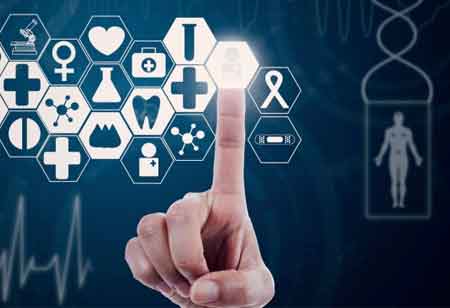THANK YOU FOR SUBSCRIBING
4 Ways Big Data is Helping in Medical Research Advancement
AI and machine learning are establishing the ethical collection of medical data, enhancing outcomes for patients, and the discovery of new drug therapies.

By
Apac CIOOutlook | Wednesday, August 26, 2020
Stay ahead of the industry with exclusive feature stories on the top companies, expert insights and the latest news delivered straight to your inbox. Subscribe today.
AI and machine learning are establishing the ethical collection of medical data, enhancing outcomes for patients, and the discovery of new drug therapies.
Fremont, CA: Big data has contributed its capabilities to advance medical research, contributing to enhancing the quality of human life. Here are four ways big data is helping medical research and healthcare progress:
Enhancing Pharmaceutical Drug Creation
Pharmaceutical companies face the issue of testing new drugs because of strict legal protocols in finding patients willing to test new drugs.
With the help of big data can accelerate the process and practicality of drug testing with the help of algorithmic methods and machine learning. This technology can utilize computation drug discovery by enabling drug creators to implement data applications in the drug development process. Accordingly, they can create realistic models and simulations to test their products.
Tackling the Spread of STDs
Sexually transmitted diseases (STDs) and sexually transmitted infections (STIs) are treatable if reported in time. Still, because of the stigma around it and lack of sexual education, the symptoms often go unchecked. Implementing big data can access local experiences and help tech companies and healthcare providers to fill the information gaps and raise awareness about sexual health.
This information produces a vast amount of data that medical professionals can study to anticipate the patterns among infected people and identify the stages where testing and treatment will be most effective. This ensures the strategic planning of treatment protocols and increases the chances of treatment success for the infected.
Better Healthcare Support Systems
AI-powered robotics can significantly enhance healthcare support like performing tedious tasks, aiding in staff training, and healthcare education. By studying public concerns in real-time, big data can forward medical research in different fields, optimize patient care, and avoid the spread of deadly diseases.
Regional Healthcare Monitoring
Data can be used in predictive medical research to help in the prevention of spreading possible diseases. It can enhance forecasting in regional outbreaks of different conditions and public health concerns. As such, healthcare workers can take proper preventive measures and assign essential resources to tackle the regional increase of a specific disease of health-related disease.





